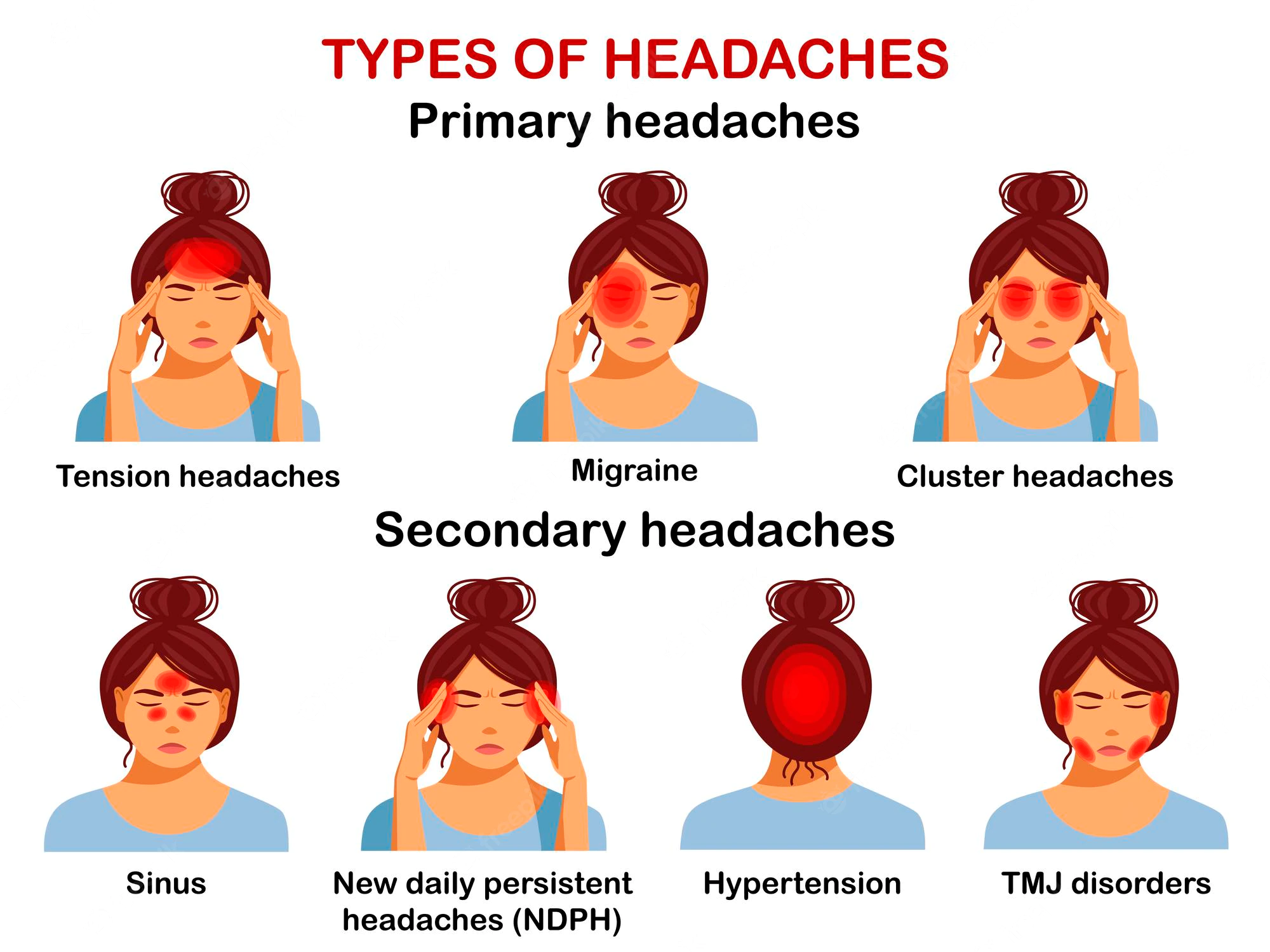Headaches are a frequent occurrence for many individuals, consistent morning headaches accompanied by nausea upon waking might signal an underlying health concern. This often ignored matter warrants our focus, as seeking timely medical consultation can contribute to a more wholesome and contented life. It is crucial not to disregard these symptoms, as they may be indicative of an underlying medical condition that requires attention and appropriate management. Consulting a healthcare professional can aid in identifying the root cause and initiating suitable treatment to improve overall well-being and quality of life.
Diagnosis and Medical Evaluation
When you visit a healthcare professional for morning headaches, they will conduct a detailed assessment to identify the specific cause of your symptoms. The diagnostic process may involve the following steps:
1. Medical History: The doctor will begin by taking a detailed medical history. They will ask questions about the frequency, duration, and severity of your morning headaches. They will also inquire about any associated symptoms, such as nausea, vomiting, sensitivity to light or sound, or changes in vision or speech. Additionally, they will explore your sleep habits, dietary patterns, caffeine consumption, stress levels, and any past medical conditions or surgeries.
2. Physical Examination: A comprehensive physical examination will be performed, focusing on the head, neck, and neurological system. The doctor will check for any signs of head or neck tension, muscle tenderness, or abnormalities that might be contributing to the headaches.
3. Neurological Assessment: A neurological examination will be conducted to evaluate brain function, reflexes, muscle strength, coordination, and sensation. This assessment helps detect any neurological issues that might be causing the headaches.
4. Sleep Assessment: If sleep-related problems are suspected, the healthcare provider may inquire further about your sleep patterns, snoring, pauses in breathing during sleep, and other sleep-related symptoms. A sleep study, also known as polysomnography, may be recommended to monitor your sleep cycles, brain activity, heart rate, and breathing during sleep.
5. Imaging Studies: In some cases, imaging studies such as Magnetic Resonance Imaging (MRI) or Computed Tomography (CT) scans may be ordered. These imaging tests can help rule out structural abnormalities, tumors, or other conditions affecting the brain that could be causing the morning headaches.
6. Laboratory Tests: Blood tests may be performed to check for underlying medical conditions that could be contributing to the headaches, such as thyroid disorders, hormonal imbalances, or infections.
Treatment Options
Once the underlying cause of the morning headaches is identified, the healthcare provider will recommend appropriate treatment options tailored to your specific needs. Treatment may involve one or more of the following:
1. Medications: Depending on the diagnosis, different medications may be prescribed. These could include pain relievers, muscle relaxants, triptans for migraines, or preventive medications to reduce the frequency and intensity of headaches.
2. Lifestyle Modifications: The doctor may advise you to make certain lifestyle changes. These could include improving sleep habits, maintaining a regular sleep schedule, managing stress, avoiding trigger foods, reducing caffeine intake, and staying hydrated.
3. Physical Therapy: For tension headaches or headaches related to muscle tension, physical therapy may be recommended. Therapeutic exercises and techniques like massage or relaxation exercises can help alleviate muscle tension.
4. Allergy Management: If morning headaches are linked to sinusitis or allergies, managing allergies through medications or avoiding triggers can be beneficial.
5. Continuous Positive Airway Pressure (CPAP) Therapy: For sleep apnea, CPAP therapy may be prescribed. CPAP machines help keep the airways open during sleep, reducing breathing disruptions.
6. Stress Management Techniques: Learning stress management techniques, such as cognitive-behavioral therapy, relaxation training, or mindfulness practices, can help manage stress-induced headaches.
Follow-Up and Monitoring
Regular follow-up visits will be important to monitor the effectiveness of the chosen treatment plan and make any necessary adjustments. It is essential to communicate any changes in symptoms or concerns to the healthcare provider during these follow-up appointments.
Morning headaches can significantly impact your daily life and well-being. Seeking early medical attention, getting a comprehensive evaluation, and following the recommended treatment plan are vital steps toward finding relief and improving your quality of life. Remember that every individual’s condition is unique, so a personalized approach to diagnosis and treatment is crucial for effectively addressing morning headaches and associated symptoms.
Also Read: https://indothinker.com/triumphant-tribute-to-ashish-sakharkar-celebrating-the-legacy-of-4-time-mr-india/




